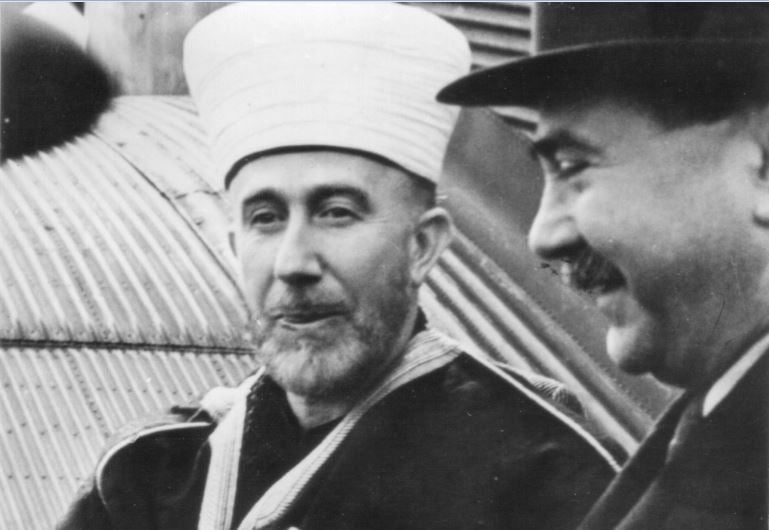On March 3, 1939, the powerful Mufti of Jerusalem rejected the creation of a majority Palestinian-Arab state in the Land of Israel, staunchly opposing any Jewish presence whatsoever.
Dr. Izzat Tannous, an Arab Christian, headed the Arab Center in London, an organization formed to promote support for the Palestinian Arabs. In 1936, he was a supporter of the Mufti of Jerusalem and a member of an Arab delegation to London. Palestinian Arab delegations went to London half a dozen times between 1920 and 1936 to protest British policy of supporting the development of the Jewish National Home, while urging Palestinian Arab self-government. According to British Colonial Secretary Malcolm MacDonald, Tannous “tended to be a moderate, therefore his influence in Palestine was not very great…he [was] a man capable of reason and some courage…whatever influence he may have had would be exerted on the side of peace.”
Tannous, still like many of his Palestinian peers, vigorously opposed Zionism and the development of the Jewish national home; specifically, he opposed the British policy of promoting the 1937 partition of Palestine into separate Arab and Jewish states. In 1938, the British withdrew the partition idea as quickly as they had introduced it. Partition was deemed unworkable primarily because the Arab state would not have been economically viable. Arab leaders in surrounding states were also clamoring for partition to be stillborn. In its new policy statement on Palestine released in early 1939, Britain proposed to severely limit Jewish immigration and land purchase, and to establish a unitary state in Palestine that would come about within a decade. In such a state the Arab population would have become a majority and the Jews a minority. Tannous and all members of the Arab Higher Committee were in favor of accepting such a solution. The only dissenting and apparently important voice was that of Hajj Amin al Husayni, the Mufti of Jerusalem.
The Mufti had enormous power in his hands, yet he chose non-engagement with the British. Furthermore, he chose not to take any political path that might sometime in the future compromise total and absolute Palestinian Arab control over all of Palestine. He did not want to consider sharing any present or future political power with any other Arab leader in Palestine, and he steadfastly opposed any Jewish presence in Palestine, even with minority status. For the Mufti, there simply was no place for the Jews or Zionists in Palestine.
By: Center for Israel Education
Do You Love Israel? Make a Donation - Show Your Support!
Donate to vital charities that help protect Israeli citizens and inspire millions around the world to support Israel too!
Now more than ever, Israel needs your help to fight and win the war -- including on the battlefield of public opinion.
Antisemitism, anti-Israel bias and boycotts are out of control. Israel's enemies are inciting terror and violence against innocent Israelis and Jews around the world. Help us fight back!

